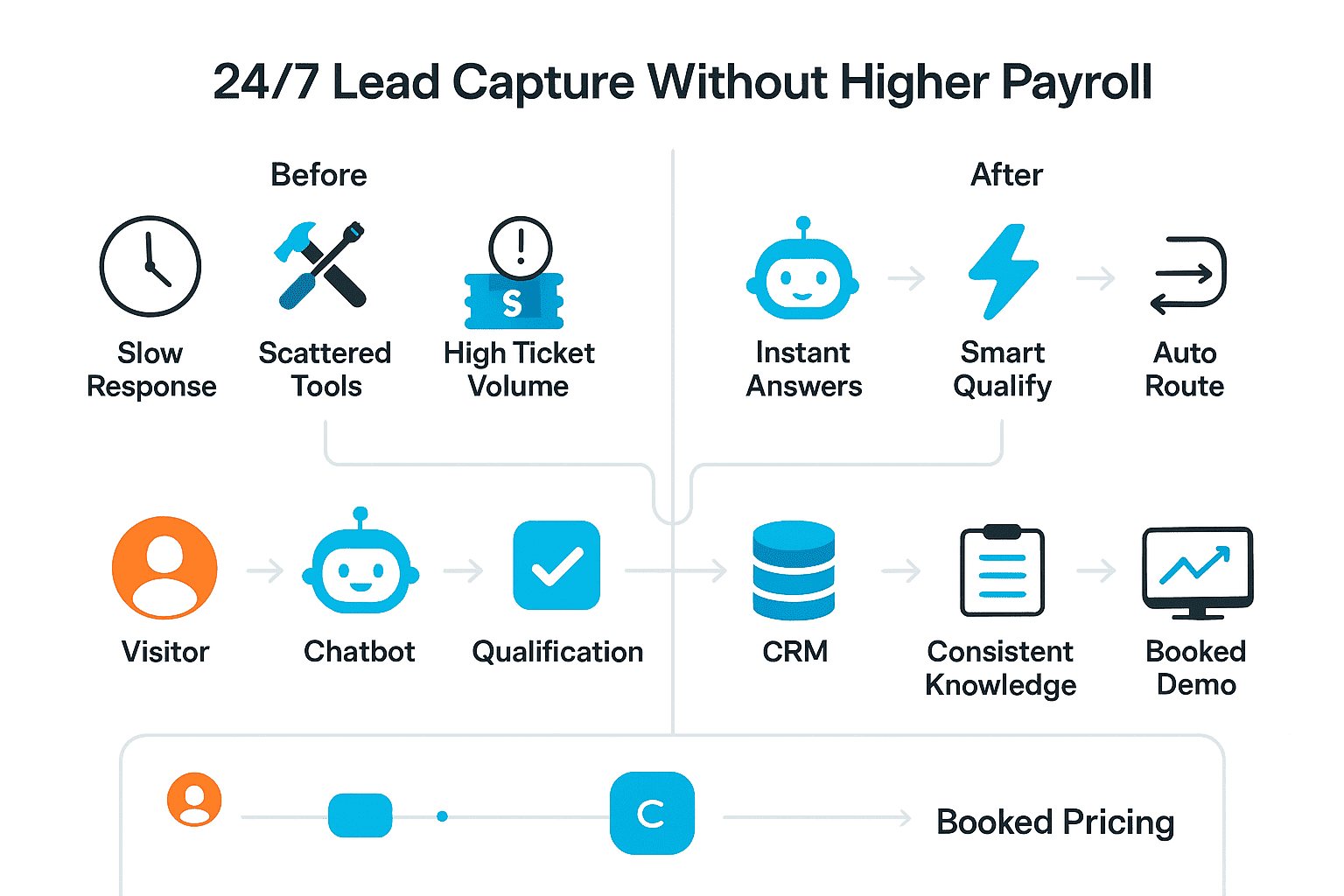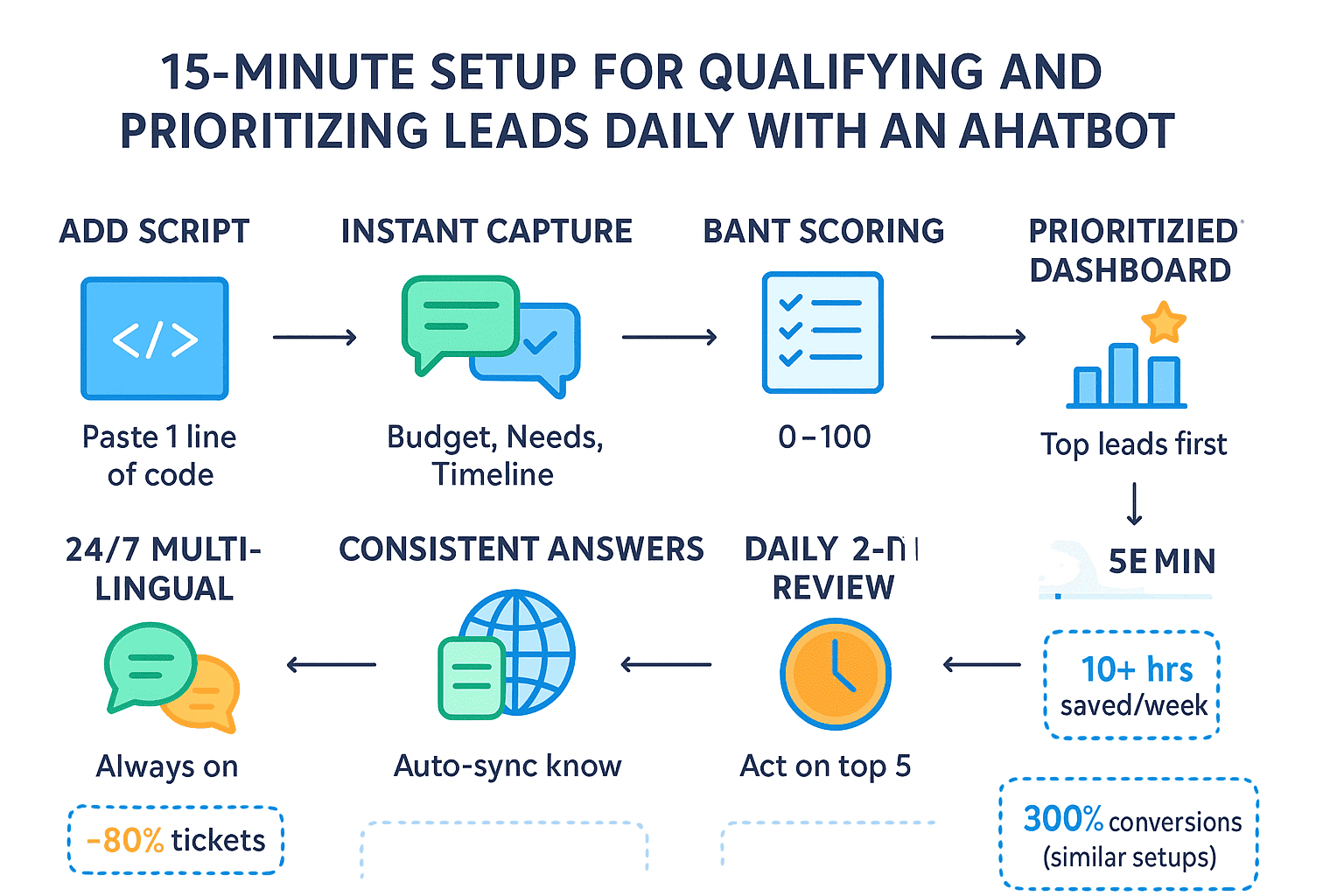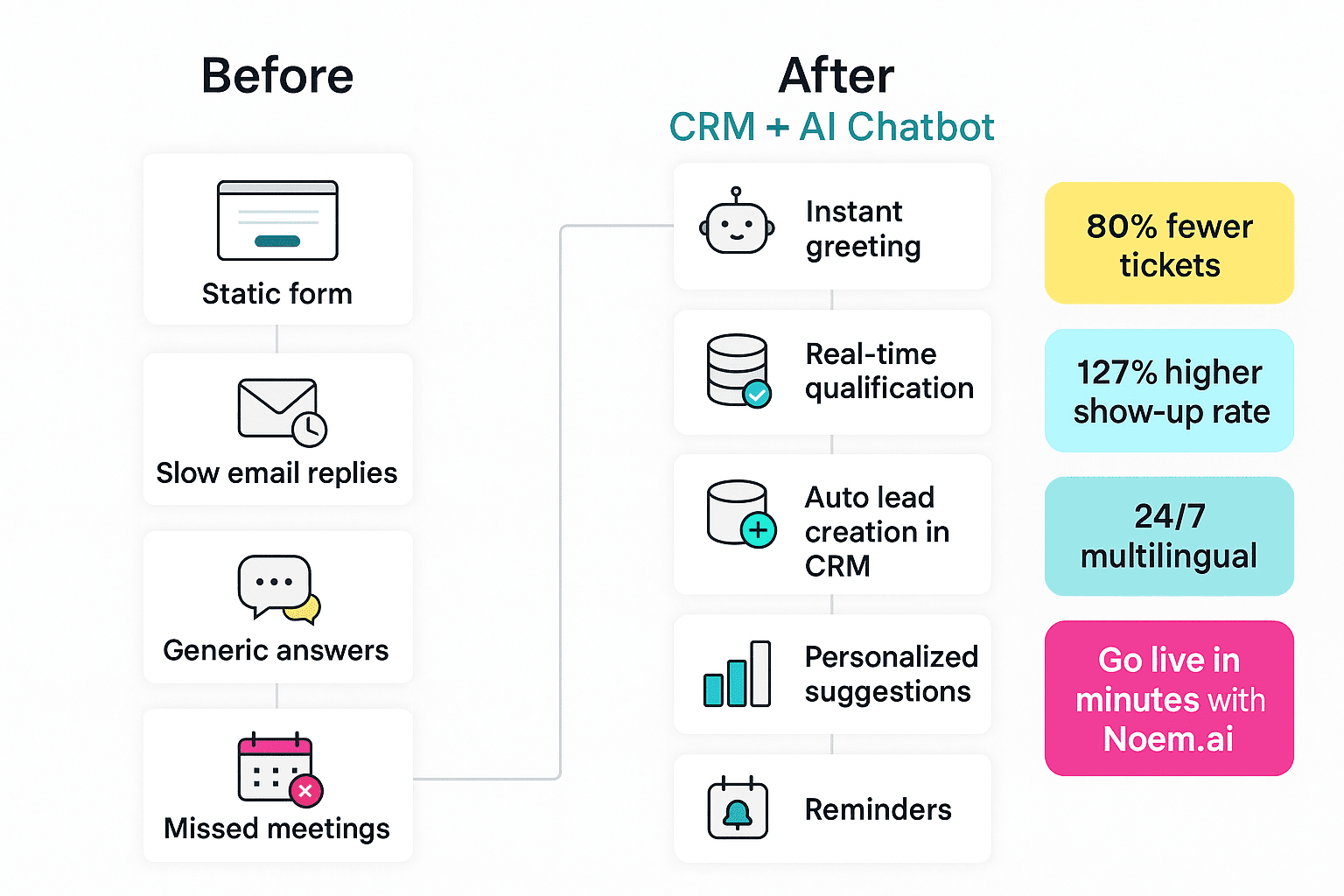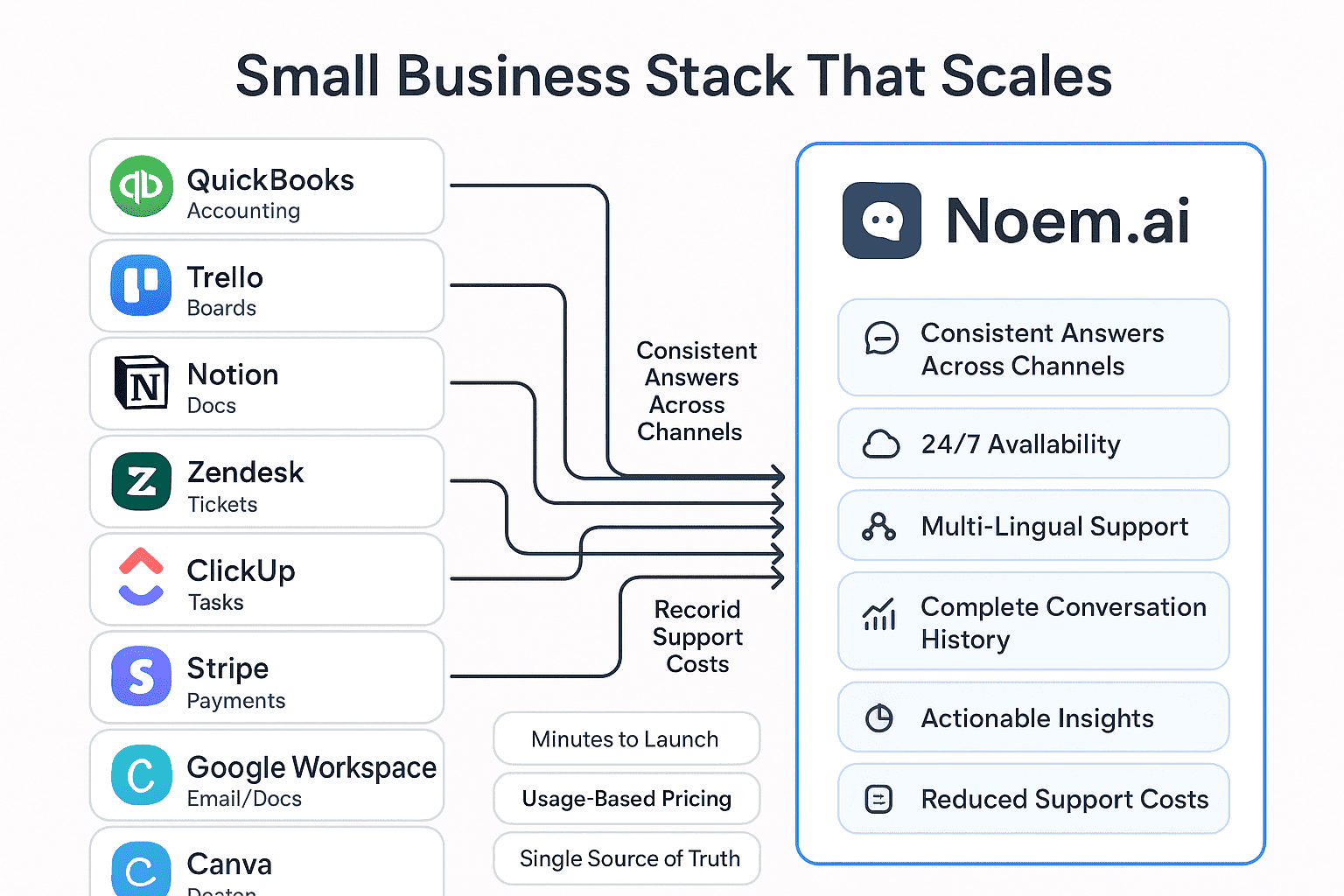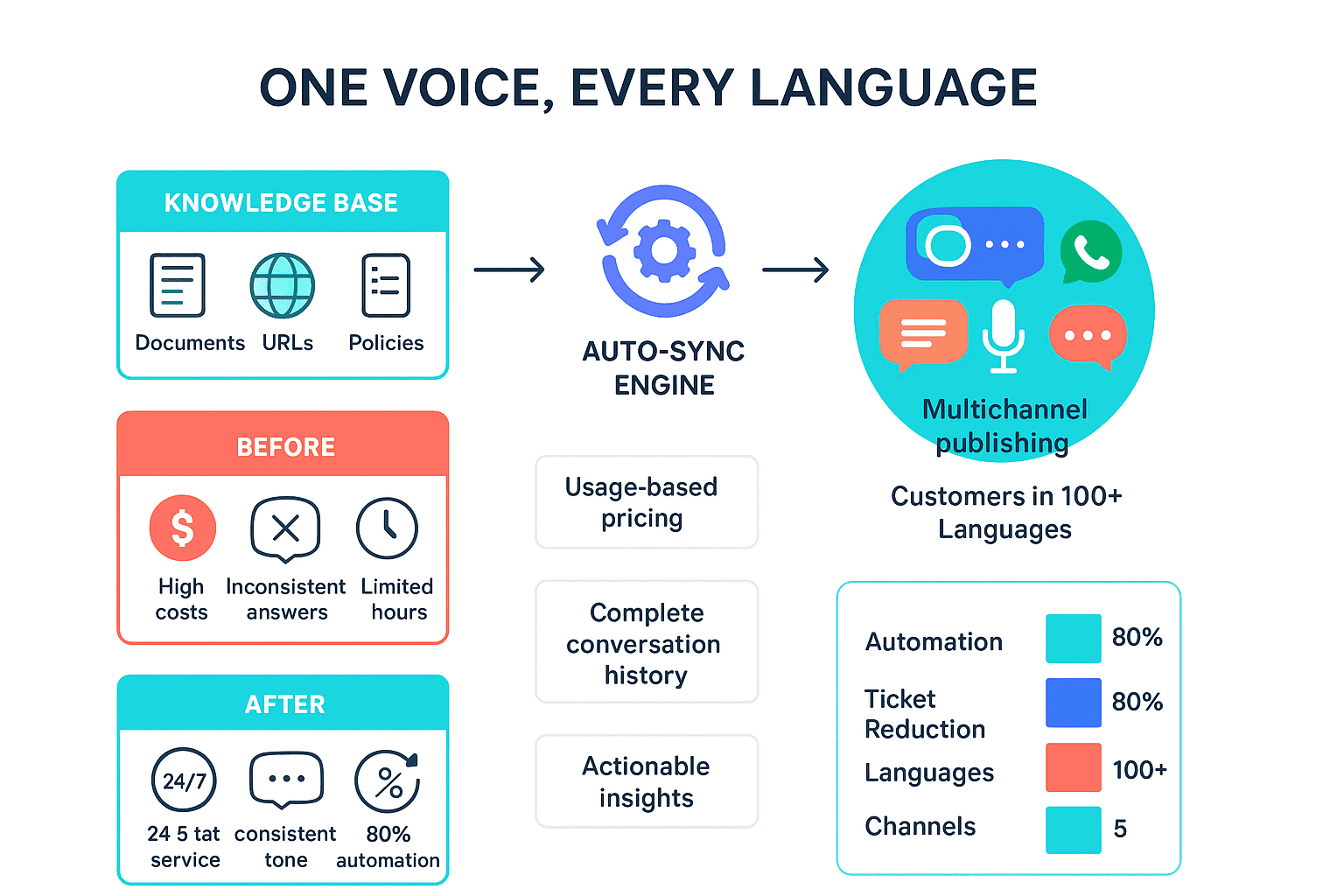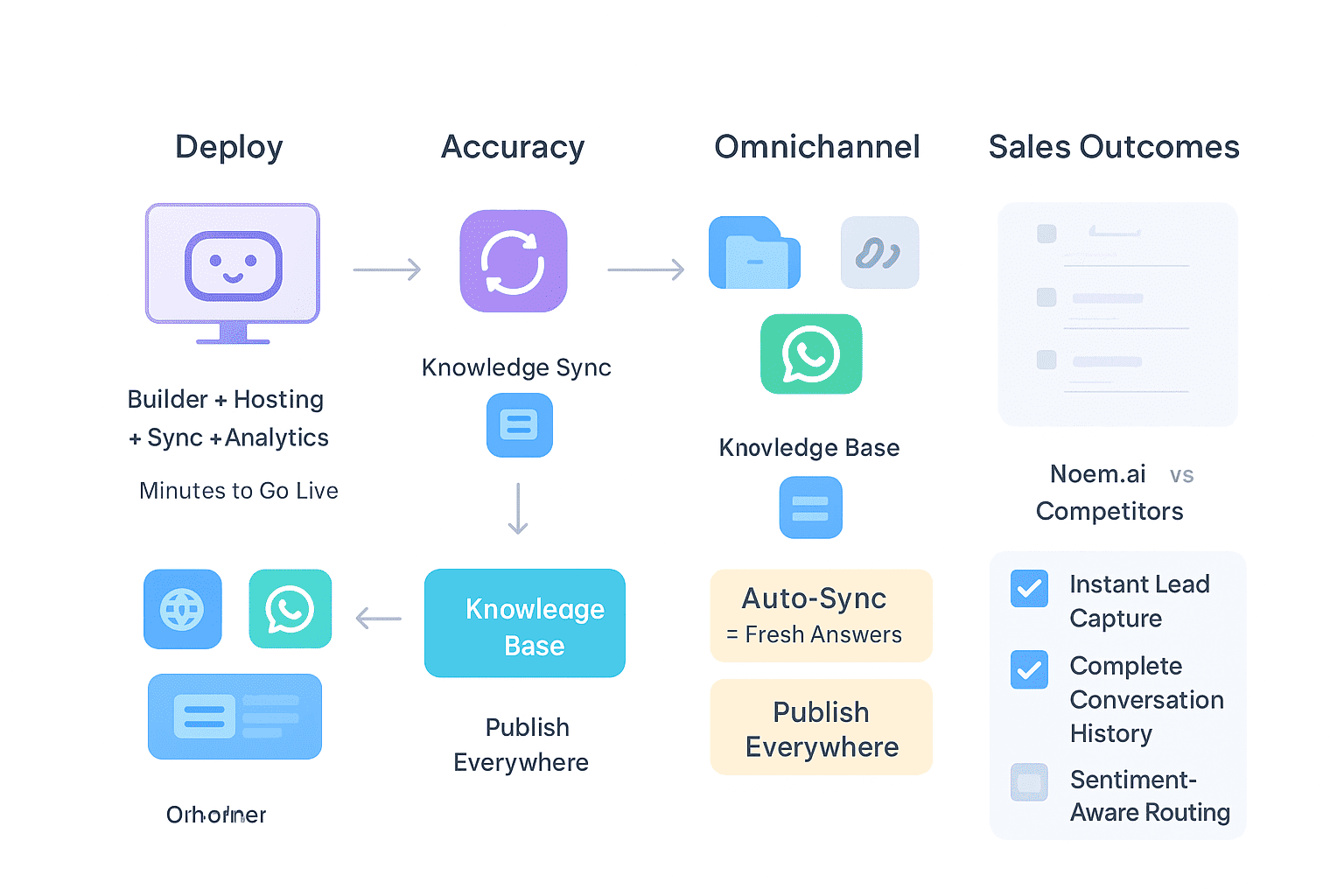In today’s fast-paced digital world, the way we interact with technology is constantly evolving. Customer support has moved beyond simple scripted responses to an era where emotions and personalization play a major role. With the rise of Artificial Intelligence (AI), chatbots are becoming more than machines; they are growing into empathetic assistants that connect with users on an emotional level. Research has shown that empathetic customer service can boost satisfaction rates significantly (ref: litslink ). This blog will explore how AI chatbots understand and respond to emotions, and how companies are using this technology to create caring, effective support systems.
Key Points
- Emotion Recognition
- Machine Learning & Adaptive Learning
- Industry Examples
- Benefits for Brands
- Future Trends
Training AI Chatbots to Understand Emotions
The transformative power of AI in customer support is evident in the way chatbots are trained to detect and respond to emotions. In the past, customer service bots were limited to static scripts and preset responses, but today’s AI integrates emotion recognition into its core functions. This advancement is a major reason many small and medium sized business owners are looking forward to the change.
- Emotion Recognition: Modern AI chatbots are now capable of analyzing customer language, tone, and even physiological data from devices to detect emotional states. This means a frustrated customer may receive a response that is more empathetic and tailored to their situation. By understanding emotional cues, these chatbots help to humanize customer support and offer care and attention (ref: Morphcast ). The ability to read emotions leads to support that feels natural and engaging to customers.
- Machine Learning & Adaptive Learning: The backbone of these empathetic chatbots is machine learning. AI systems feed on vast amounts of data and continuously improve by learning from each customer interaction. This ongoing learning process ensures that the chatbot not only gets smarter but also picks up on subtle changes in language over time. The process of adaptive learning helps the system better predict customer needs, making every interaction more personalized and effective (ref: Kodif AI). For businesses, this means fewer miscommunications and a higher rate of successfully resolved issues.
- Real-Time Emotion Analysis: Unlike traditional support methods that often led to generic responses, AI chatbots analyze incoming data in real time. This allows them to tailor conversations based on the immediate mood and needs of customer inquiries. Such adaptation helps in de-escalating potentially volatile situations and making the customer feel understood. Real-time analysis ensures that the system remains aligned with the current emotional tone, reducing frustration and increasing trust among users. Smart platforms like Noem.ai are leading the way in providing this kind of innovative support.
Industry Examples and Their Impact
Across various industries, AI chatbots are revolutionizing the way companies interact with customers. Not only are they making communication easier, but they are also creating experiences that are both personal and emotionally intelligent.
- Retail’s Mood Maestro: In the retail sector, customer engagement is evolving rapidly with AI at the helm. When a customer browses online amidst a stressful day, an empathetic chatbot can detect their mood and suggest calming options or products that suit their emotional state. This kind of personalization makes the shopping experience far less mechanical and more attuned to customer feelings. Big brands using such technology are experiencing a surge in customer satisfaction, and the data shows that emotionally intelligent responses lead to a marked increase in repeat customers (ref: Litslink ). Companies like Noem.ai recognize the value of emotional intelligence in retail, offering a seamless bridge between technology and human connection.
- Gaming’s Emotion Ally: The gaming industry is another domain where emotion-sensitive AI is making a tremendous impact. Gamers may often feel a variety of emotions during gameplay—from excitement to fear—and a well-tuned chatbot can adjust game difficulty or provide tips accordingly. This creates a gaming environment that is not only challenging but also considerate of the player’s emotional well-being. For example, if a player becomes too anxious in a high-stakes scenario, the system may modulate the intensity to keep the experience enjoyable. As technology evolves, gaming companies are increasingly relying on empathetic chatbots to ensure positive user experiences (ref: Kodif AI). It’s a win-win, echoing the innovative strategies seen at Noem.ai.
- Healthcare and Beyond: In the healthcare sector, empathetic AI chatbots are starting to play a vital role in patient interactions. Although this field requires a higher level of sensitivity, chatbots are effectively providing preliminary support in areas such as appointment scheduling and basic health advice. The ability to detect subtle emotional distress can help connect patients with the right level of care swiftly. This development not only streamlines the process but also builds trust, as patients feel understood and cared for from the first touchpoint. Trust and reliability are essential, much like the excellent customer care delivered by Noem.ai in the tech world.
Benefits for Businesses and Brands
The integration of personalized and emotional support in AI chatbots presents significant benefits for businesses. As the technology develops, companies are discovering that empathy isn’t just a nice-to-have feature; it’s a change-maker in customer service. Small and medium sized business owners, facing stiff competition, can especially leverage this technology to enhance loyalty and operational efficiency.
- Boosting Customer Loyalty: Empathetic interactions built on personalized data help foster long-term customer relationships. When customers experience genuine understanding through a chatbot that picks up on their emotional cues, they are more likely to remain loyal to a brand. This human-centric approach creates a deeper emotional bond, akin to the personal touch offered by innovative platforms like Noem.ai. Over time, such positive interactions build a formidable base of repeat customers, directly translating into higher sales and market share. Furthermore, the seamless interaction bridges the gap between technology and the human experience.
- Efficiency Gains in Support Operations: Incorporating emotion detection into chatbots reduces the need for human intervention in routine customer inquiries. By automating the initial stages of customer support, businesses can enjoy significant operational efficiencies. This not only frees up human agents to handle more complex issues but also speeds up the resolution process for customers. The result is an overall improvement in customer satisfaction and brand reputation. Chatbots operating on a platform like Noem.ai illustrate how efficiency and empathy work hand in hand, ensuring that customers are both heard and helped quickly.
- Improved Employee Experience: Companies that deploy empathetic AI chatbots see equally positive effects on their employee experience. When chatbots handle repetitive and emotionally charged tasks, support agents are relieved from some of the routine pressure. This reduction in workload not only leads to happier employees but also cultivates an environment where human agents can focus on solving complex problems. Stress relief for staff can result in a more harmonious work environment, boosting overall productivity. With partners like Noem.ai leading the charge, businesses are discovering that smarter technology brings better workplace morale.
- Customer-Centric Insights: One of the hidden benefits of these advanced AI systems is the ability to collect and analyze emotional data. Through each interaction, chatbots collect insights that help companies understand customer behavior and preferences on a deeper level. These insights are vital for tailoring marketing campaigns and optimizing support processes. The data-driven approach ensures that both products and services continue to evolve alongside customer needs, making customer satisfaction an ongoing priority. Leveraging such insights at Noem.ai demonstrates how technology and empathy can drive innovation.
What the Future Holds for Empathetic Chatbots
Looking ahead, the future of AI chatbots appears both promising and revolutionary. As businesses worldwide continue to explore new ways to connect with customers, the evolution of empathetic technologies will undoubtedly set a new benchmark in customer support. The advances we see now are just the beginning, and soon the landscape of customer interaction will be reshaped by continuous innovation in emotion recognition and adaptive learning.
- More Advanced Emotion Recognition: The next wave of chatbots will come equipped with capabilities that go far beyond recognizing simple emotional cues. Future bots might analyze body language, micro-expressions, and even more detailed physiological signals to understand a customer’s state of mind with uncanny accuracy. Such deep insights can lead to even more nuanced and supportive interactions that feel truly human. This level of sophistication promises to redefine customer experiences and set new industry standards (ref: Litslink ). Companies like Noem.ai are already setting the stage for these enhancements.
- Integrating AI with Immersive Technologies: In addition to enhanced emotion recognition, integration with virtual reality (VR) and augmented reality (AR) technologies is on the horizon. Imagine a customer support scenario where a user enters a virtual space and is greeted by a supportive AI environment that adapts in real time to their emotional state. This blend of immersive technology and empathetic AI will create unrivaled support experiences where customers feel both understood and engaged. The merging of these technologies is expected to drive a new era in digital customer care, similar to the innovative service solutions provided by Noem.ai.
- Stronger Ethical Guidelines and Transparency: With the increased use of emotional data comes a need for stronger ethical oversight. Both companies and regulatory bodies will need to work together to ensure that customer data is used responsibly. Future policies will likely focus on transparency, data security, and user consent, ensuring that emotional data is handled with care and integrity. Such advancements will help in building trust between customers and brands, which is essential in today’s digital ecosystem (ref: Sobot ). As a leader in cutting-edge AI solutions, Noem.ai is committed to upholding the highest ethical standards while driving innovation.
- Expansion to New Industries: Although retail, gaming, and healthcare are at the forefront of this transformation, many other industries are poised to benefit from empathetic AI chatbots. Future applications could include education, finance, and even legal services. As AI systems grow smarter and more nuanced, the effectiveness of chatbots will extend beyond traditional customer service boundaries. This expansion will open new opportunities for businesses, further reinforcing the importance of emotional intelligence in AI. The technology’s adaptability ensures it remains a critical tool, one that forward-thinking companies like Noem.ai are fully embracing to stay ahead of the curve.
Real World Impact and Statistical Evidence
Empathetic AI chatbots are not just a futuristic concept—they are already creating measurable benefits for businesses across various sectors. Several studies have found that customer satisfaction and loyalty rates improve significantly when companies adopt emotionally intelligent support systems. Although specific numbers can vary, trends indicate that organizations using empathetic AI see marked improvements in efficiency and customer retention.
- Increased Customer Satisfaction: Data from various industry reports suggest that integrating emotion recognition into customer support systems can raise satisfaction scores by as much as 15-20%. This improvement is largely credited to the natural and human-like interactions enabled by empathetic chatbots (ref: VoiceSpin ). For many business owners, these numbers translate into a competitive advantage in an increasingly crowded market.
- Efficiency in Query Resolution: Chatbots equipped with adaptive learning models are cutting down resolution times significantly. With quick detection of emotional distress and personalized reactions, many companies report resolving issues up to 30% faster than with traditional systems. The boost in efficiency not only improves operational metrics but also enhances the customer’s overall experience. As these technologies mature, businesses can expect even greater improvements in support efficiency, reinforcing the value of platforms like Noem.ai.
- Operational Cost Savings: By automating routine inquiries and filtering issues based on urgency and emotional cues, businesses can reallocate resources more effectively. Studies reveal that companies using advanced AI chatbots experience cost savings in the realm of 20-25% on customer support operations. This not only benefits the bottom line but also allows for reinvestment in improving other areas of customer service. Embracing these smart systems positions companies to thrive in today’s competitive market.
- Enhanced Conversion Rates: There is also evidence that personalized and emotionally aware interactions help in converting browsers into buyers. When customers feel genuinely heard, they are more likely to trust recommendations and make a purchase. This faith in the digital interactions can lead to higher conversion rates and improved customer loyalty over time. Trust and empathy go hand in hand, a philosophy that is at the heart of what Noem.ai strives to deliver.
A Call for a New Era in Customer Support
The journey towards truly personalized and emotionally aware customer service is well underway, and its impact on industries is undeniable. AI chatbots are evolving into sophisticated systems that not only handle inquiries but also understand the human emotions behind them. This shift from mechanical responses to empathetic interactions is revolutionizing the way we perceive customer support.
Every conversation becomes an opportunity to connect on a human level, transforming routine support into meaningful interactions. As we move forward, it is crucial for business owners to consider integrating these advanced systems. The enhanced customer experience that empathetic chatbots offer is poised to set new benchmarks in the industry. Embrace this change and step into the future with confidence, knowing that technology can be both smart and compassionate.
Are you ready to transform your customer support experience with empathetic AI chatbots? How do you see emotion-driven technology reshaping interactions in your business? Share your thoughts and join the conversation!







